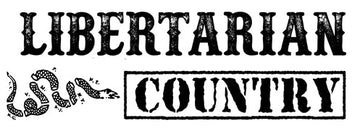When news broke that conservative commentator Charlie Kirk had been shot, social media lit up with predictable hot takes. Some were appalled, others were somber, and then there were those who smirked and said something to the effect of: “Well, he supported gun rights. What did he expect?”
This reaction is not just tasteless—it’s illogical. The attempt to equate support for the Second Amendment with deserving to be a victim of gun violence is a category error, a fundamental misunderstanding of what it means to advocate for a right in a free society.
The False “You Had It Coming” Logic
The argument goes like this: If you defend the right to own firearms, then you must be willing to accept any and all consequences of firearm misuse, including being shot yourself. The problem is that this reasoning doesn’t withstand even mild scrutiny. By that standard, virtually every liberty in a modern society could be twisted into an excuse for victim-blaming.
Take driving. Tens of thousands of Americans die each year in traffic accidents. Some are reckless drivers, but many are completely innocent—struck by drunk drivers, distracted drivers, or sheer bad luck. Yet, you don’t hear people say: “Well, you supported driving rights, so I guess you deserved to get hit.” The very suggestion would be cruel, not clever.
If you want to understand the fallacy in a political context, try this one: If I defended a woman's right to drive and I was killed in an accident by a woman driver, would you say that I just had that a'coming?
Or take medicine. Each year, hundreds of thousands of Americans die from adverse drug reactions, hospital mistakes, or surgical complications. Should those who advocate for access to healthcare be told they “brought it upon themselves” if a medical procedure kills them? Obviously not. Society understands that medicine, like driving, has risks—but the net benefit is so great that we accept those risks as the price of progress.
Rights and Risks Are Not the Same as Guilt
The existence of risk does not equate to moral blame. Advocating for the right to own firearms is not the same thing as endorsing violence. It is an acknowledgment that freedom carries inherent risks, and that those risks do not nullify the value of the right itself.
By mocking Kirk’s shooting as “just desserts,” critics reveal a dangerous inconsistency: they only apply this logic selectively, to rights they dislike. The same people who defend free speech—even when it empowers hateful or dangerous groups—would never say a murdered journalist “had it coming” because they supported freedom of the press. Nor would they say a wrongly convicted person “deserved it” for advocating for due process.
But when it comes to guns, the calculus changes—not because the logic makes sense, but because it’s politically convenient.
The Net Benefit Argument
Firearms, like cars and medicine, bring both harm and benefit. Yes, there are tragic shootings every year. But guns also prevent crime, empower individuals against tyranny, and provide millions of Americans with security and recreation. The trade-off isn’t one-sided—it’s a balance.
When Kirk said, “unfortunately you will have thousands of gun deaths a year, that is the price of the Second Amendment,” he was acknowledging reality. Every liberty has a cost. Freedom of speech allows for lies and slander. Freedom of the press allows for misinformation. Freedom of travel allows for drunk driving. None of that means we should abolish those freedoms.
The existence of abuse or tragedy doesn’t negate the underlying good of the right—it proves that rights exist in a world where humans are imperfect. The measure of whether a right is worth protecting isn’t whether it eliminates harm, but whether its net effect on society is positive. And guns, like cars and medicine, meet that standard.
Conclusion: Hypocrisy in Disguise
At the end of the day, the claim that supporting gun rights makes one “deserving” of gun violence is not just a bad argument—it’s a rhetorical trick to mask hatred. It’s not about logic, it’s about scoring points. But if we applied this logic consistently, almost no one could advocate for anything without being blamed when the downsides manifest.
Freedom is messy. Rights are risky. But that’s the bargain of liberty. You don’t deserve to be a victim simply because you supported someone’s right to choose.
To claim otherwise isn’t clever irony—it’s intellectual laziness dressed up as moral superiority.
No innocent person deserves to be the victim of violence, regardless of their political stance. We don’t say cancer patients deserved it because they supported medical freedom. We don’t say drunk driving victims deserved it because they supported cars. We don’t say a kid deserved it because their parents didn’t vote a certain way. At least for now, I suppose...



